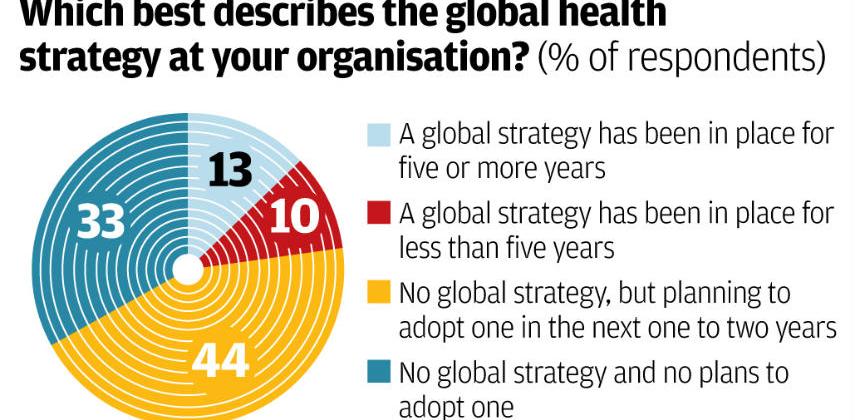A recent survey has found that just 23 per cent multinational corporations (MNCs) based in Asia Pacific have a global health strategy in place. The figure fell notably shy of those from other regions such as the Americas, where some 36 per cent now operate at the group level.
According to Towers Watson, the company behind the survey, corporate health initiatives are more effective and produce significantly higher cost savings.
Despite this, 67 per cent of regional MNCs said that formulating such strategies simply wasn't a top priority.
Lack of interest from both employee and employer may be to blame for this, says Joseph Yip, Towers Watson's head of health and group benefits.
Citing an earlier study, Yip notes that among the factors affecting employee attraction and retention, health was generally seen as a low priority. "People [in Asia] care more about job security, cash and promotions," he says.
Nevertheless, the seasoned consultant remains confident that companies will start to look more closely at the issue once the symptoms of poor health - absenteeism, reduced productivity - start to affect their bottom lines.
As for what an effective global policy entails, Towers Watson's director of benefits, Elaine Hwang, cites two key factors: "First, you have a clear and understandable strategy - how you want to do it, why you want to do it. The second thing is the communication. Even if you have a strategy, you really have to communicate it to local employees, she says.
Yip, meanwhile, notes that understanding the difference between the two distinct components of health programmes is equally important.
"The first is medical - you go to the doctor, you have an operation. The other is wellness, which is more to do with preventive care and promoting healthy living," he says, adding that it's usually the latter where companies fall short.
Asked if organisations looking to hire could use their health programme as a differentiator in what remains a highly competitive labour market, Yip says that it's largely a matter of positioning.
"If they can package it right, communicate it right, then yes, it's saleable. If not, then to me it's really a missed opportunity," he says.
Hwang adds: "The strong economy has made health care one of the top factors for retaining and attracting talent in Asia - much more than in the US or Europe."


